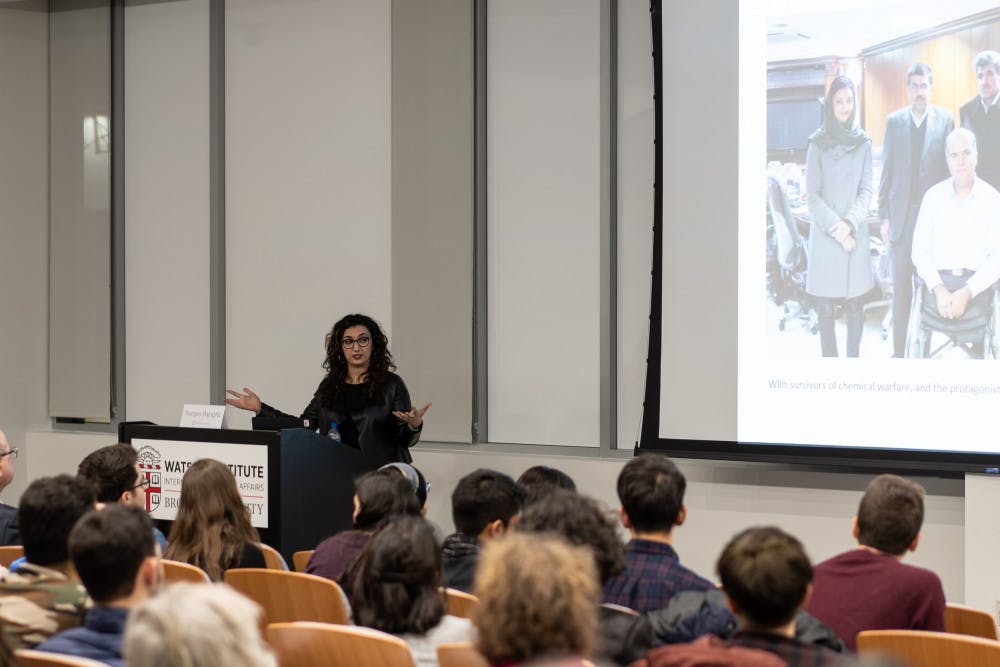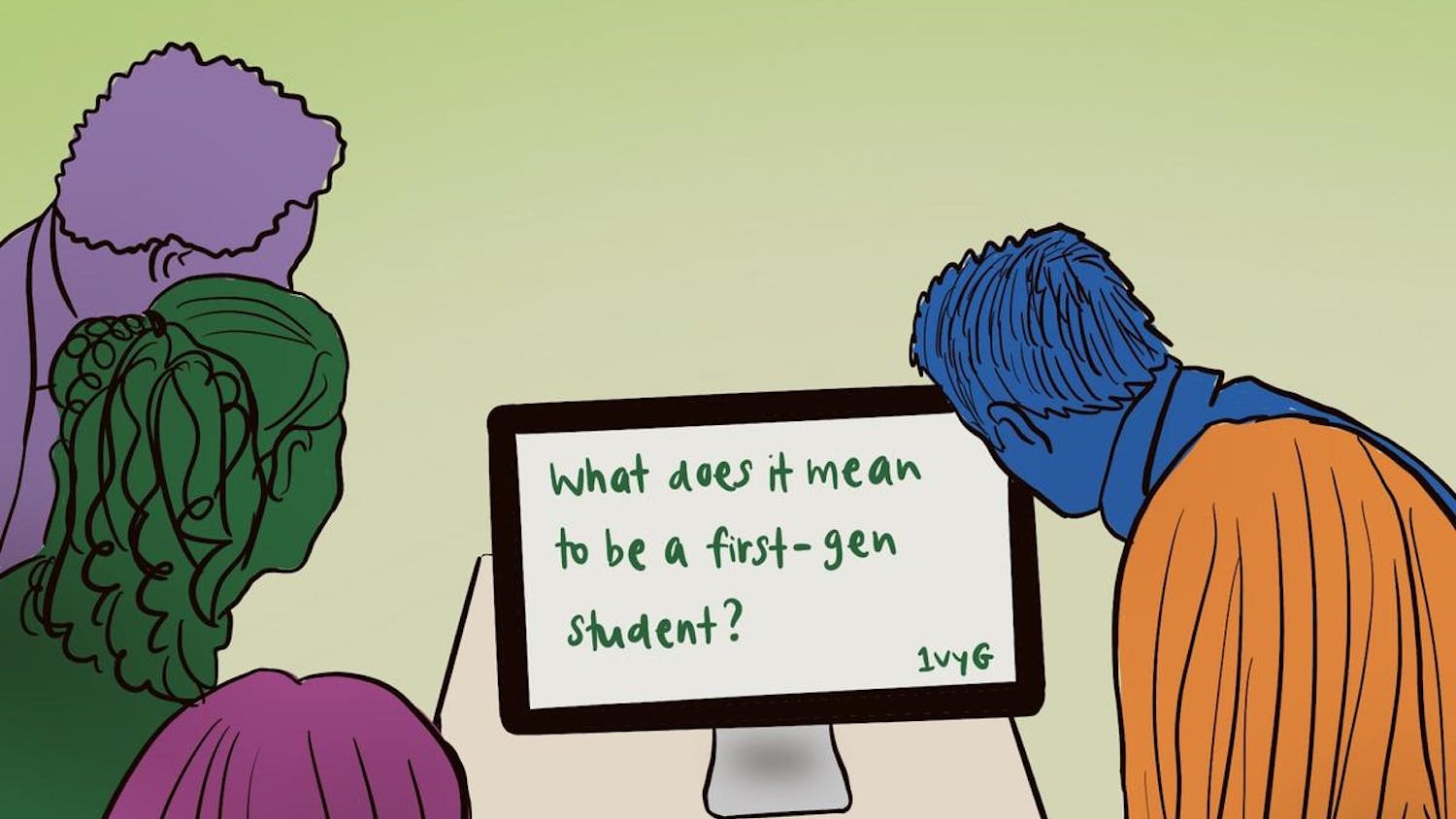Narges Bajoghli, professor of Middle East Studies at Johns Hopkins University, discussed the decades-long research behind her 2019 book in a talk at the Watson Institute Monday night.
Bajoghli’s book "Iran Reframed: Anxieties of Power in the Islamic Republic" is the culmination of an ethnographic study in Iran which has lasted over a decade. In her fieldwork, Bajoghli met with pro-regime media producers for paramilitary groups like Basij, Ansar-e Hezbollah and the Revolutionary Guard.
Bajoghli’s research aims to tackle a pressing question facing Iran and the IRGC today from the perspective of these media producers: “Who are the rightful heirs to the Iranian revolution?”
Bajoghli began the talk with an overview of the history that has laid the groundwork for the political and military climate in Iran today, emphasizing the particular significance of the 1980 Iran-Iraq War.
In conducting her research, Bajoghli described experiencing intense scrutiny while seeking the trust of media producers in Iran; while publishing articles, for example, she knew that the producers kept her social media and phone conversations under surveillance due to suspicion that she was a spy. Bajoghli also noted her surprise at the extent to which the American government attempted to curtail her research efforts, bringing up questions of loyalty and national security.
Ultimately, Bajoghli was able to secure unprecedented access to powerful producers responsible for driving the discourse and image of the future of the Iranian Republic. “The men … challenged everything I thought I knew about Iran, revolutions and states,” she explained. Her research tapered to focus not just on the state media, but on the men who produced it. Although she did not necessarily agree with them, she sought to understand and represent their perspectives on Iran today. She described learning about their fraught personal experiences: “What it means … to doubt what they have fought for, not know what is to come, and be wrought with anxiety about the fact that they may be relegated back to the margins of society if their political project fails.”
One of the producers who Bajoghli spoke with was a veteran of the Iran-Iraq War and a member of the older generation seeking to win over youth — who make up the majority of protestors against the Republic — with pro-regime films. Bajoghli said she hopes her book adds nuance to an often-simplified young and old generation dichotomy.
Bajoghli concluded the talk with her book’s findings: If the spirit of the Revolution is to endure in the long term, it must appeal both to youth opposed to the regime and those currently committed to it. “Keeping the Revolution alive will depend on the ability of its image-makers not only to appeal to a younger population that wants change, but also to build consensus among members of the younger generation within the regime’s own ranks,” she said.
Providence local and former international relations professor Jake Redway, who attended the talk and previously taught at the Watson Institute, found Bajoghli’s book to be a “potentially revealing but also unusual approach to look at film and the way it’s being utilized by the Revolutionary Guard.”
As a cousin of the speaker and a self-identified Iranian, Roxanna Moazami ’22 told The Herald before the event: “I really hope that people can see that Iran is really different from how the news perceives it. … I’ve never been anywhere that’s kinder, so I just hope people realize that.”





